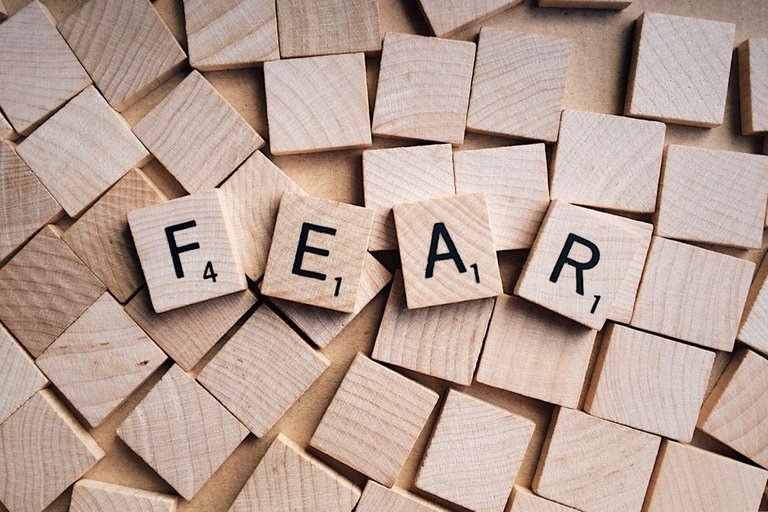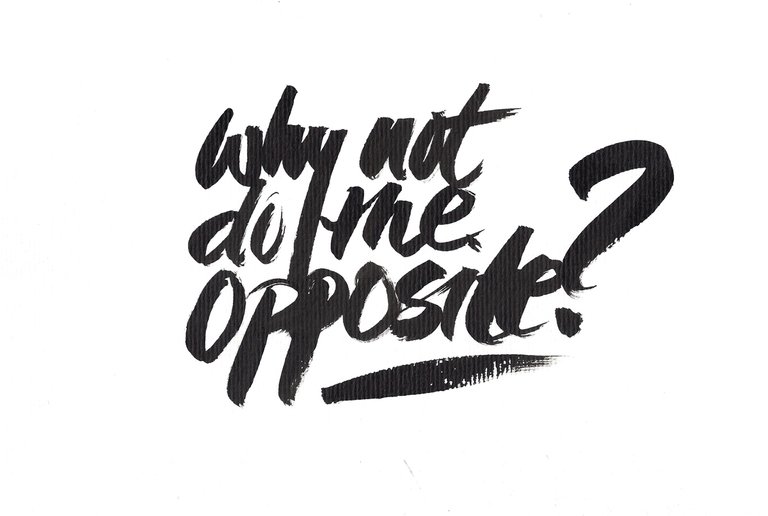Self-restraint and Boldness

You require a lot of self-restraint to bargain boldly with all the dread actuating occasions of your life. This is most likely why Churchill stated, "Boldness is appropriately viewed as the principal of the ethics, for upon it, all others depend."
The truth of the matter is that everybody is anxious—and for the most part of numerous things. This is typical and regular. Often,fear is important to save life, anticipate damage, and prepare for budgetary mistakes.So if everybody is perplexed, what is the contrast between the overcome individual and the quitter? The main contrast is that the overcome individual teaches himself to stand up to, manage, and act disregarding the dread. Interestingly, the defeatist enables himself to be ruled and controlled by the dread. Somebody once said that—as to fighting, in spite of the fact that it applies to any circumstance—"The distinction between the legend and the weakling is that the saint sticks in there five minutes longer....
Fears Can Be Unlearned
Luckily, all feelings of trepidation are found out; nobody is conceived with fears. Fears can consequently be unlearned by honing self-restraint over and again with respect to fear until the point when it leaves.

The most widely recognized feelings of trepidation that we encounter, which frequently undermine all expectation for progress, are the apprehensions of failure, destitution, and loss of money. These feelings of dread reason individuals to maintain a strategic distance from danger of any sort and to dismiss opportunity when it is introduced to them. They are so apprehensive of disappointment that they are relatively deadened with regards to taking any risks whatsoever. There are numerous different feelings of trepidation that meddle with our bliss. Individuals fear the loss of affection or the loss of their employments and their money related security. Individuals fear shame or scorn.

Individuals fear dismissal and feedback of any sort. Individuals fear the loss of regard or regard of others. These and numerous different feelings of trepidation keep us down all through life.
Dread Incapacitates Activity
The most well-known response in a dread circumstance is the mentality of, "I can't!" This is the dread of disappointment and misfortune that prevents us from making a move. It is experienced physically, beginning in the sunlight based plexus.
At the point when individuals are extremely anxious, their mouth and throat go dry, their heart begins beating. Here and there they inhale shallowly and their stomach beats. Regularly they crave getting up and hurrying to the restroom.
.jpg)
These are for the most part physical indications of the inhibitive negative propensity design, which we as a whole ordeal every now and then. At whatever point a man is in the hold of dread, he feels like a deer got in the headlights of an auto. This dread deadens activity. It frequently close down the mind and causes the individual to return to the "battle or-flight" response. Dread is an appalling feeling that undermines our joy and can keep us down for the duration of our lives.
Courage isn't nonattendance of dread; it is control of dread, dominance of dread.
Do the Inverse
Aristotle depicted valor as the "Brilliant Signify" between the extremes of weakness and carelessness. He showed that "to build up a quality that you need, go about as though you as of now had that quality in each circumstance where it is called for." In present day terms, in any case, we say, "Counterfeit it until the point that you make it."
You can really change your conduct by certifying, envisioning, and going about as though you as of now have the quality you want. By confirming, by rehashing the words, "I can do it!" unequivocally at whatever point you feel anxious for any reason, you can drop the sentiment of "I can't."

Each time you rehash the words "I can do it!" with conviction, you supersede your dread and increment your certainty. By rehashing this assertion again and again, you can in the long run assemble your strength and certainty to the point where you are unafraid.
Envision Yourself as Unafraid
By envisioning yourself performing with certainty and ability in a territory where you are fearful,your visual picture will in the end be acknowledged by your intuitive personality as guidelines for your execution. Your mental self portrait, the manner in which you see yourself and consider yourself, is inevitably modified by sustaining your mind these positive mental pictures of yourself performing getting it done. By utilizing the "go about as though" technique, you walk, talk, and conduct yourself precisely as you would in the event that you were totally unafraid in a specific circumstance. You stand up straight, grin, move rapidly and certainly, and in each regard go about as though you as of now had the boldness that you want.

The Law of Reversibility says that "on the off chance that you feel a specific way, you will act in a way steady with that inclination." However in the event that you demonstration in a way reliable with that inclination, regardless of whether you don't feel it, The Law of Reversibility will make the inclination that is predictable with your actions.
This is one of the best achievements in progress brain science. You build up the valor you want by training yourself over and over to do the thing you fear until the point that that dread in the long run vanishes — and it will.
Overwhelm THE Dread
Advance Toward the Dread
When you recognize a dread and train yourself to push toward it, it becomes littler and more sensible. In addition, as your feelings of trepidation become littler, your certainty develops. Before long, your feelings of trepidation lose
their control over you.In differentiate, when you move in an opposite direction from a dread actuating circumstance or individual, your dread becomes bigger what's more, bigger. Before long it commands your reasoning and feeling, distracts you amid the day, and regularly keeps you alert during the evening.
Manage the Dread Specifically

The best way to manage a dread is to address it head-on. Advise yourself that "dissent" isn't a waterway in Egypt. The normal inclination of numerous individuals is to deny that they have an issue caused by dread of some kind. They're apprehensive about standing up to it. Thus, it turns into a noteworthy wellspring of stress, unhappiness,and psychosomatic sickness.
Deal with the circumstance or individual specifically. As Shakespeare stated, "Take arms against a ocean of inconveniences, and in this manner, end them." The partner of dread is stress. Like twin sisters, dread and stress circumvent together. Mark Twain once stated, "I have stressed over a great deal of things throughout everyday life, and the vast majority of them never happened."
It has been assessed that 99 percent of the things that you stress over never happen. What's more, the greater part of the things that do happen, happen so rapidly that you didn't have room schedule-wise to stress over them in the first
The Fiasco Report
At whatever point you are stressed over something, round out a "Debacle Report" on the circumstance. This will demolish your dread and stress quickly. This is regularly called the "stress buster." ** The Calamity
Report has four parts:**
• Right off the bat,
Characterize the Stress Circumstance Obviously. What precisely would you say you are stressed over? Extremely frequently, when you set aside the opportunity to be totally clear about the stress circumstance, an approach to determine the circumstance turns out to be quickly obvious.
• Also,
Recognize the Most noticeably bad Conceivable Thing That Could Happen if this stress circumstance were to occur. Would you lose your activity? Would you lose your relationship? Would you lose your cash? What is the most exceedingly awful thing that could happen? Be clear about this. Much of the time, you will see that should the most exceedingly terrible happen, it would not demolish you. It may be badly designed or awkward, yet you would in the long run recuperate. You will find that it's presumably not worth all the stress that you are dedicating to it.
• Thirdly,
Make plans to Acknowledge the Most exceedingly terrible Conceivable Result, should it happen. Say to yourself, "Indeed, if that happens, it won't execute me. I will figure out how to get along." The vast majority of the worry of stress originates from dissent, from not being willing to confront the most exceedingly awful conceivable thing that could happen. In any case, once you have set out to acknowledge the most noticeably awful (should it happen), all the stress and
stretch appear to vanish.
• Fourthly,
Start Promptly to Enhance the Most noticeably awful. Make each stride that you conceivably can to ensure that the most noticeably awful conceivable result does not happen. Make a move quickly. Accomplish something. Get on with it. Act rapidly. Get so bustling ensuring that the most noticeably awful thing does not occur that you have no opportunity to stress.
The Genuine Antitoxin
In this last examination, the main genuine remedy for dread or stress is trained, deliberate activity toward your objectives. Get so bustling taking a shot at your objectives or the answers for your issues that you have no opportunity to be perplexed or to stress over anything.When you rehearse the self-control of bravery and power yourself to confront any dread actuating circumstance in your life, your confidence goes up, your dignity increments, and your feeling of individual pride develops. You in the long run achieve the point in life where you are not anxious of anything. When you have built up the strength to venture out in confidence, you should then build up the self-control of diligence ..........